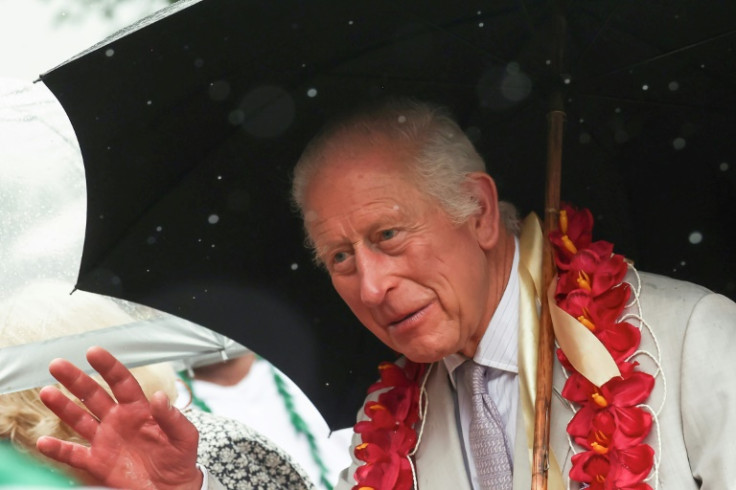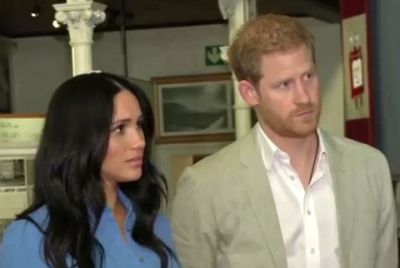King Charles' 'Bribe' To Andrew: Beatrice and Eugenie 'Protected Only If' He Stood Down
King Charles and Prince William forced Andrew Windsor out of Royal Lodge by using the status of Princesses Beatrice and Eugenie as leverage.

Imagine a high-stakes chess match played out within the ancient walls of the British monarchy, where every move is scrutinised and the pieces are family members. For months, Prince Andrew, formerly the Duke of York, had been an immovable object, stubbornly refusing to relinquish his £32 million residence, Royal Lodge, on the Windsor estate.
He felt untouchable, shielded by a legal agreement he believed guaranteed his stay until 2078. The King and the heir, Prince William, needed an irresistible force to dislodge him, one strong enough to overcome the legal protections and Andrew's protracted defiance.
What was the ultimate leverage that finally broke the deadlock? It wasn't a threat to his finances or his already-tarnished reputation, but something far more personal: the future status of his daughters, Princesses Beatrice and Eugenie.
Senior royal sources briefed on the negotiations have exclusively told RadarOnline.com that King Charles and Prince William leaned on one of the few remaining pressure points available to them – the position and future roles of Beatrice and Eugenie – to finally push Andrew Windsor out. This strategy, subtle but effective, culminated in a dramatic shift.
Andrew agreed not only to vacate the 30-room property but also to accept the formal loss of his titles and honours. Insiders suggest the turning point came when the King, 77 – with the full backing of his eldest son and heir, Prince William, 43 – made it unequivocally clear that any continued resistance to stepping away from public royal life risked drawing Andrew's daughters into the harsh fallout of their father's persistent scandals.
Safeguarding the Status: The Royal Strategy Regarding Princesses Beatrice and Eugenie
The signal from the palace hierarchy couldn't have been clearer. As one senior source stated, 'The signal couldn't have been clearer. Beatrice and Eugenie would be protected – but only if Andrew stood down. Their titles, positions and future roles were very much part of the discussion.'
This wasn't framed as a harsh ultimatum, but the implication was impossible to ignore. Another insider added, 'It wasn't presented as an ultimatum, but the meaning was obvious – it was basically a bribe, but put in the most polite language. Had Andrew continued to dig in, the King and Prince William would have been forced to look at broader changes for his daughters.'
The King, driven by a desire for a slimmed-down, stable monarchy, and Prince William, preparing for his eventual role, saw Andrew's continued presence at Royal Lodge and his resistance to relinquishing his remaining status as an unacceptable risk to the institution.
The understanding set out to Andrew was a calculated compromise. Under this agreement, Beatrice and Eugenie would retain their titles of Princess, keep their current positions in the line of succession, and continue to be considered eligible for future public roles.
Crucially, Beatrice would also remain a Counsellor of State, a significant position allowing her to act for the King should he be unavailable. 'For Andrew, safeguarding his daughters was the red line,' the source confided.
'Once he was assured their position would remain intact, he stepped aside.' This assurance was immediately followed by a tangible sign of palace support.
Shortly after Andrew accepted the loss of his titles, Outward Bound – an organisation long associated with the Royal Family – announced Princess Beatrice as its new Deputy Patron. Her uncle, Prince Edward, the Duke of Edinburgh, was confirmed as Patron.
Both appointments, sources noted, had been signed off by the King and signalled 'a new chapter' in royal charitable work. Martin Davidson, Outward Bound's chief executive, commented, 'With the Duke of Edinburgh and Princess Beatrice working alongside us, we're embarking on a new chapter. One where every young person has the chance to test their limits, build confidence and discover that anything is possible. Their support reflects a shared belief that adventure changes lives.'
A New Chapter of Royal Engagements for Princesses Beatrice and Eugenie
With the King's explicit approval, Beatrice has begun undertaking additional public engagements. She recently visited Chelsea and Westminster Hospital to learn more about Borne's research into premature birth – a cause particularly close to her heart after her daughter, Athena, was born prematurely.
This increased visibility reflects the back-channel compromise, yet it also highlights the intensity of the pressure on the monarchy to distance itself from Andrew's past.
Beatrice and Eugenie have long faced criticism from some commentators who view them as too closely tied to their father's controversies.
These associations include Andrew inviting the convicted sex offender Jeffrey Epstein to Beatrice's 18th birthday party in 2006, and later the princesses becoming entangled in questions over payments from a Turkish businesswoman to the family.
Despite these lingering issues, senior figures insist that the King does not believe the sisters should pay for their father's mistakes.
A royal source affirmed, 'It's one of the rare points on which His Majesty and Andrew see eye to eye. They both care deeply about Beatrice and Eugenie and believe the princesses can make a meaningful contribution in public life.'
The resolution over Royal Lodge ultimately secured the future of the princesses, proving that for Andrew, family was the final, and most effective, lever.
© Copyright IBTimes 2025. All rights reserved.




















